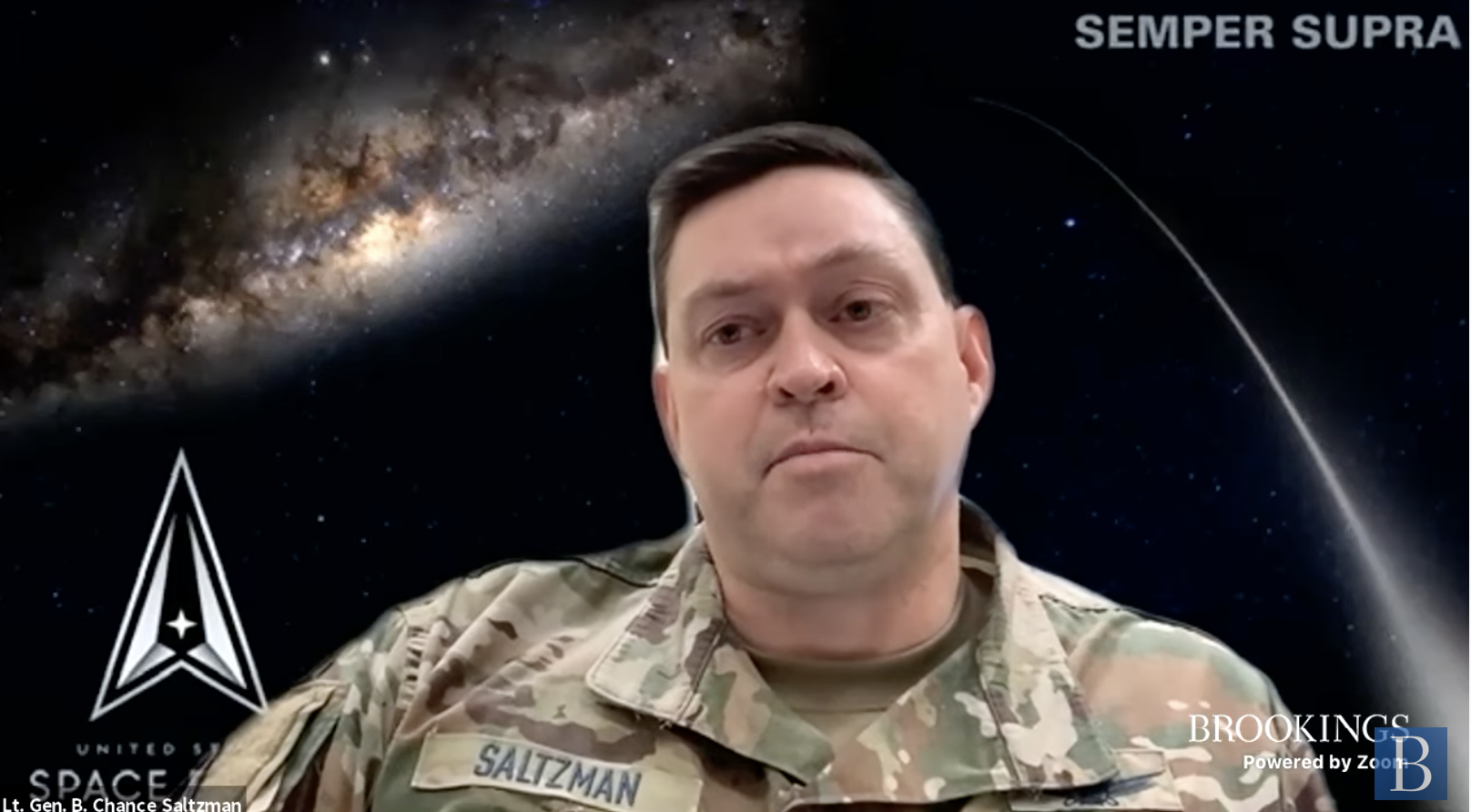Products You May Like
The question of what it means to behave responsibly in space has taken on increasing urgency following a series of Russian anti-satellite weapon tests.
WASHINGTON — As more satellites are launched into space, there is a growing conversation about the need to keep the cosmos safe and establish rules of the road for orbital activities. The U.S. Space Force wants to get out in front of that discussion, said deputy chief of space operations Lt. Gen. B. Chance Saltzman.
“I think we need to be a leader in both helping devise rules and tenets of responsible behavior in space,” Saltzman said March 19 on an webcast hosted by the Brookings Institution.
The question of what it means to behave responsibly in space has taken on increasing urgency following a series of Russian anti-satellite weapon tests and amid concerns that the proliferation of satellites and debris is rapidly cluttering Earth orbit.
Rules are needed for all players, Saltzman said. “We’re all now participating in this space domain. We’re all operating in proximity of one another. What does it mean to operate safely so that everybody can take advantage of this and continue to do what they need to do in pursuit of their interest but in a safe way?”
The Space Force sees this issue as an extension of what the military does in other domains like the oceans and the airspace. Establishing rules and setting guidelines “are things that we’ve been doing for hundreds of years in the maritime environment and for decades in the air environment,” Saltzman said.
In space, as in the other domains, he added, “the closer we get to one another, the less safe it is. And so we need to start talking about how do we behave together in close interaction so that we don’t accidentally or purposefully interfere with the operations of another satellite.”
On the issue of tackling space junk, Saltzman said the Space Force should “play a central role.”
Debris is hard to track with the military’s radars and telescopes and poses significant risk, he said. Even a small object moving at five miles a second is a “tremendous amount of energy that can cause problems.”
Across all operations, “we need to make sure we’re using procedures and sound practices that limit debris,” Saltzman said. “When you create those debris events they stay around for a long long time.”
These are problems that can’t be fixed overnight, he said, adding that they require advocacy and negotiation. “It’s about working with partners to come up with what the right rules of the road are.”
Saltzman said the Space Force trains and educates its personnel “on how we can go about creating less debris on orbit and taking care of it.”
